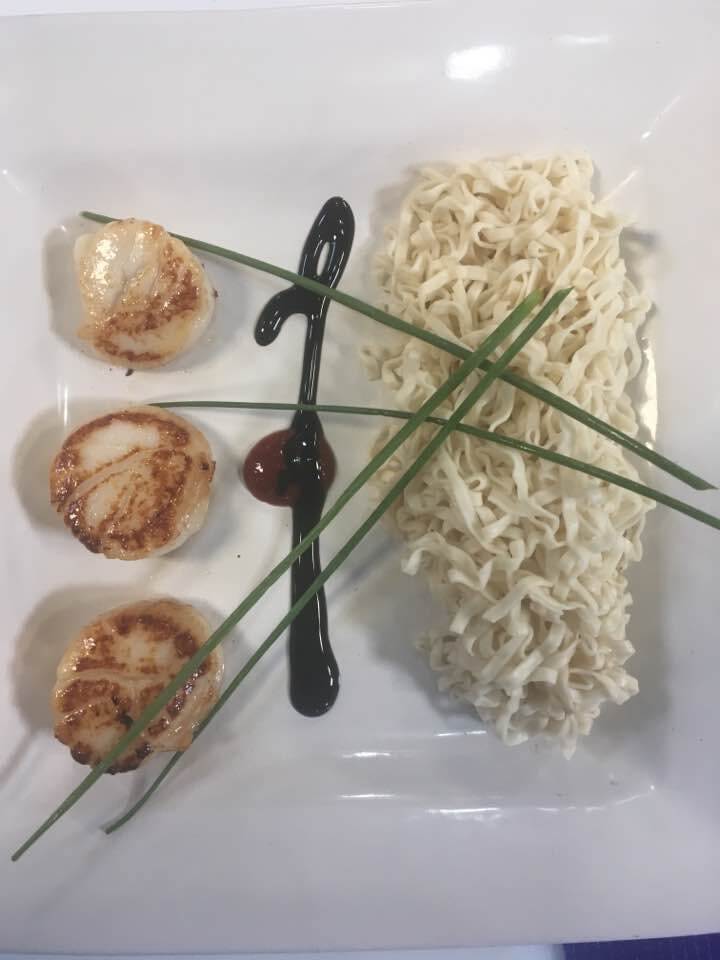With the growing focus on sustainable living, many people are becoming more conscious of their impact on the environment. Embrace eco-friendly practices for your private chef experience is an excellent way to enjoy exceptional food while also reducing your carbon footprint. Integrating sustainable dining elements into your event not only aligns with your green lifestyle but can also create a unique and meaningful experience for your guests.
In this blog, we’ll help you navigate the exciting world of sustainable dining. These insightful tips and strategies will enable you to create a more environmentally friendly in-home private chef experience that aligns with your values, teaches your guests about the importance of sustainability, and provides an unforgettable dining journey.
Imagine the fulfillment of knowing that your thoughtful decisions are contributing to a healthier planet—one tantalizing dish at a time. By embracing sustainable dining practices, you’ll be able to enjoy your delicious, chef-prepared cuisine guilt-free, knowing you’ve made thoughtful choices that support both the environment and your taste buds. Let’s embark on this journey towards eco-conscious dining and explore how an in-home private chef event can be the epitome of sustainability and culinary excellence.
1. Organic and Locally Sourced Ingredients: Support Local Farmers and Reduce Your Carbon Footprint
One of the key components of sustainable dining is sourcing organic and locally-produced ingredients for your in-home private chef event. Here’s why it’s essential:
a. Reduced Carbon Footprint: Locally sourced foods minimize energy consumption needed for transportation, thereby lowering greenhouse gas emissions.
b. Support Local Economy: Buying ingredients from local farmers and suppliers boosts the local economy and promotes community growth.
c. Better Nutritional Value: Fresh produce is often richer in nutrients compared to imported options, enhancing your guests’ dining experience.
d. Pesticide-Free: Organic farming avoids the use of harmful pesticides, ensuring you serve healthier meals to your guests.
When planning your menu, work with your private chef to incorporate locally sourced ingredients that align with your sustainability values.
2. Farm-to-Table Dining: Celebrate Fresh, Seasonal Produce for a Wholesome and Flavorful Culinary Adventure
A farm-to-table approach is an excellent way to create a more sustainable dining event, focusing on fresh, seasonal produce:
a. Embrace Seasonality: By selecting what’s currently in season, you ensure ingredients are fresher and more flavorful.
b. Reduce Food Miles: Source ingredients from nearby farms or markets to minimize the impact of transportation on the environment.
c. Promote Biodiversity: Opt for heirloom and less-common produce varieties, encouraging a diverse agricultural landscape.
d. Advocate for Sustainable Farming Practices: Farm-to-table dining promotes responsible farming methods such as crop rotation, water conservation, and reduced chemical use.
Collaborate with your private chef to design a farm-to-table menu that highlights the bounty of the season and supports sustainable farming practices.
3. Minimizing Food Waste: Smart Choices and Practices for Reducing Waste During Your Event
Reducing food waste is an integral part of sustainable dining, and with a little planning, you can easily minimize waste throughout your event:
a. Plan Portions Wisely: Work with your chef to determine the ideal portion sizes to reduce excess food and waste.
b. Repurpose Ingredients: Use leftover ingredients in creative ways to create new dishes or condiments for future meals.
c. Choose Reusable Containers: Store and transport your food in reusable and eco-friendly containers rather than single-use plastics.
d. Composting: Turn food scraps and leftovers into valuable compost for your garden, minimizing landfill waste.
Discuss food waste reduction strategies with your private chef and integrate them into your event preparation and execution.
4. Incorporating Plant-Based Options: Diversify Your Menu and Appeal to a Broader Range of Guests
Including plant-based options in your menu not only caters to guests with dietary preferences but can also contribute to a more sustainable dining experience:
a. Reduce Your Carbon Footprint: Plant-based diets typically have a lower environmental impact than meat-heavy diets, reducing greenhouse gas emissions.
b. Conserve Water: Growing plant-based foods often requires less water compared to raising livestock.
c. Diversify Your Menu: Showcasing plant-based options highlights your chef’s versatility and creativity and opens up new culinary experiences for your guests.
Discuss plant-based alternatives with your chef and work towards including them in your menu for a more inclusive and environmentally friendly dining experience.
5. Sustainable Tableware and Decor: Eco-Friendly Choices for a Greener Tablescape
Lastly, your tablescape can also embrace sustainability with mindful choices in tableware and decor:
a. Reusable Tableware: Opt for reusable, durable items for dinnerware, glassware, and flatware.
b. Sustainable Materials: Incorporate linens and decorations made from sustainable sources, like organic cotton and recycled paper.
c. Upcycled Decor: Give new life to old or reclaimed items like vintage plates or repurposed glass bottles for a unique and sustainable touch.
d. Biodegradable Options: If disposable items are necessary, choose eco-friendly, biodegradable, or compostable alternatives.
Be mindful of your tablescape choices and opt for sustainable solutions when designing your event.
Conclusion
Sustainable dining is an extraordinary way to enjoy a memorable in-home private chef event that is both eco-friendly and delicious. By embracing organic and local ingredients, farm-to-table dining, minimizing waste, incorporating plant-based options, and making sustainable tableware choices, you’ll create a unique and environmentally responsible dining experience for you and your guests. Embrace eco-friendly practices for your private chef experience!
At Food Fire + Knives, we share your passion for creating eco-conscious culinary events that showcase delicious, sustainable ingredients and techniques. To plan your next sustainable in-home private chef experience that marries outstanding cuisine with green dining principles, reach out to us today. Our private chef in Minneapolis eagerly awaits the opportunity to help you create a one-of-a-kind, earth-friendly dining adventure.

